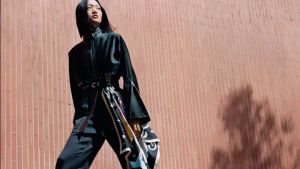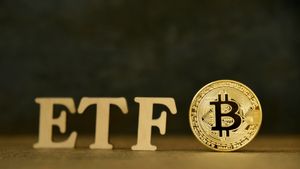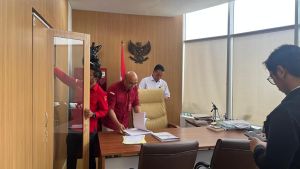JAKARTA – The Vietnamese government, Wednesday, April 20, stated that it was preparing a new regulation requiring social media companies to remove content deemed illegal within 24 hours.
The amendments to the law will strengthen Vietnam, which so far has a $1 billion market power for Facebook. It also makes Vietnam one of the strictest regimes in the world for social media companies. The new rules will also strengthen the hand of the ruling Communist Party when it comes to cracking down on "anti-state" activities.
The 24-hour timeframe for removing “illegal content and services” will not have a grace period, while active “illegal live streaming” must be blocked within three hours, a source in the Vietnamese government said. Companies that do not meet this deadline will have their platform banned from operating in that country.
Social media companies have also been notified that content that endangers national security must be removed as soon as possible.
Today, social media platforms often have a few days' lapse to deal with requests from the Vietnamese government. This did not make the Vietnamese government satisfied, because the response was considered slow.
The amendments to the new law, which have not been officially announced, are expected to be signed by Vietnam's Prime Minister, Pham Minh Chinh, next month. The new rules will also take effect from July.
A source in the Vietnamese government who leaked the new rules to Reuters declined to be named because of the sensitive issue. Vietnam's Ministry of Communications and Foreign Affairs did not respond to requests for comment.
Representatives of the owners of Facebook, Meta Platforms Inc, Alphabet Inc, which owns YouTube and Google, and even Twitter declined to comment on Vietnam's new law.
Meanwhile, TikTok, which is owned by China's ByteDance, said it would continue to comply with applicable local laws. They also ensure that TikTok remains a safe space for creative expression. Tiktok's representative in Vietnam, Nguyen Lam Thanh, said that they are ready and will remove content that violates the platform's guidelines in the country.
Most governments in the world, so far, do not have laws that enforce the removal of content on social media companies. But Vietnam's move comes amid an increasing crackdown in some parts of the world against online content that has alarmed activists.
The Indonesian government is also said to be preparing to impose a 24-hour timeframe as Vietnam did for illegal content on social media. While the Indian government has required their government's requests to social media to be fulfilled within 36 hours.
Vietnam, with a population of 98 million, is among Facebook's top 10 markets by number of users. In fact, there are reportedly 60-70 million people in the country using Facebook, by 2021.
The country generates about 1 billion US dollars (IDR 14.3 trillion) in annual revenue for Facebook. This amount is more profitable than most of the Facebook market in Europe. Of course, it will hit Facebook if it can't fulfill the Vietnamese government's request.
YouTube also has 60 million users in Vietnam and TikTok has 20 million, according to government estimates for 2021. Twitter is not as popular with Vietnamese people as they see it as an English forum.
Vietnam's Communist Party has tolerated no criticism and the country's courts have also handed down long prison terms for dissidents and activists who post content critical of the government on Facebook and YouTube.
The government's efforts to exercise control over online content are intensifying. The cybersecurity law introduced in 2019 was followed up by national guidelines on social media behavior in June last year.
In 2020, Facebook agreed to significantly increase censorship of "anti-state" posts for local users after Vietnamese authorities slowed traffic to its platform and threatened to shut it down completely.
SEE ALSO:
At the time, Facebook said it was reluctant to comply with government requests to "restrict access to content it deems illegal".
The changes or amendments to the laws in Vietnam came about because of the government's dissatisfaction with the current level of declining demand, the source said.
According to data from Vietnam's communications ministry, during the first quarter of 2022, Facebook met 90% of government takedown requests, Alphabet complied with 93% and TikTok complied with 73%.
The source said in addition to removing "illegal" content, the government wants social media companies to change algorithms to limit content related to sexually suggestive material, gambling, and the sale of illegal drugs and supplements.
The Vietnamese government also wants to remove the accounts of celebrities it believes use their influence to sell illegal products, defame others and promote fake charities.
Many experts think that social media companies will find it difficult to comply with the Vietnamese government's takedown request in just 24 hours.
They note that clear violations of their own company rules such as depictions of extreme violence can be dealt with very quickly. But other requests that don't conform to individual social media policies take longer to handle and finding qualified staff for the task is a challenge.
The English, Chinese, Japanese, Arabic, and French versions are automatically generated by the AI. So there may still be inaccuracies in translating, please always see Indonesian as our main language. (system supported by DigitalSiber.id)















